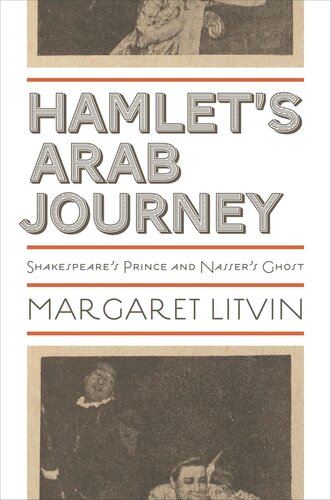

Most ebook files are in PDF format, so you can easily read them using various software such as Foxit Reader or directly on the Google Chrome browser.
Some ebook files are released by publishers in other formats such as .awz, .mobi, .epub, .fb2, etc. You may need to install specific software to read these formats on mobile/PC, such as Calibre.
Please read the tutorial at this link: https://ebookbell.com/faq
We offer FREE conversion to the popular formats you request; however, this may take some time. Therefore, right after payment, please email us, and we will try to provide the service as quickly as possible.
For some exceptional file formats or broken links (if any), please refrain from opening any disputes. Instead, email us first, and we will try to assist within a maximum of 6 hours.
EbookBell Team

5.0
30 reviewsFor the past five decades, Arab intellectuals have seen themselves in Shakespeare's Hamlet: their times "out of joint," their political hopes frustrated by a corrupt older generation. Hamlet's Arab Journey traces the uses of Hamlet in Arabic theatre and political rhetoric, and asks how Shakespeare's play developed into a musical with a happy ending in 1901 and grew to become the most obsessively quoted literary work in Arab politics today. Explaining the Arab Hamlet tradition, Margaret Litvin also illuminates the "to be or not to be" politics that have turned Shakespeare's tragedy into the essential Arab political text, cited by Arab liberals, nationalists, and Islamists alike.
On the Arab stage, Hamlet has been an operetta hero, a firebrand revolutionary, and a muzzled dissident. Analyzing productions from Egypt, Syria, Iraq, Jordan, and Kuwait, Litvin follows the distinct phases of Hamlet's naturalization as an Arab. Her fine-grained theatre history uses personal interviews as well as scripts and videos, reviews, and detailed comparisons with French and Russian Hamlets. The result shows Arab theatre in a new light. Litvin identifies the French source of the earliest Arabic Hamlet, shows the outsize influence of Soviet and East European Shakespeare, and explores the deep cultural link between Egypt's Gamal Abdel Nasser and the ghost of Hamlet's father.
Documenting how global sources and models helped nurture a distinct Arab Hamlet tradition, Hamlet's Arab Journey represents a new approach to the study of international Shakespeare appropriation.
Some images inside the book are unavailable due to digital copyright restrictions.